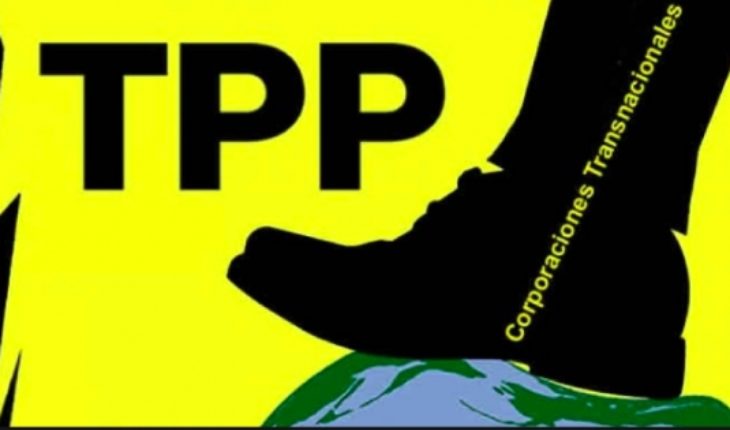commitment to the PS, PPD seats, part of the DC and Some members of the right, voted against the TPP11 (trans-Pacific free trade agreement) took by surprise to the Government. Facing this cross rejection, the Executive fears ending the highest vote against a Treaty of free trade in Chilean history.
Thus, the Treaty pro lobby is intensifying. For example, Rodrigo Yáñez, director general of international economic relations, criticizes the rejection of the Treaty as a result of a series of “myths” of people who have “a political position against free trade”. In addition, former Foreign Minister Heraldo Munoz argues that “nothing in the TPP11 limits national sovereignty to establish regulations”. Finally, the former Minister Jose Antonio Viera-Gallo goes a step further, comparing the potential rejection of Chile the free trade area transpacific bullido and traumatic rejection of England to the European Union (Brexit). These claims misread the arguments against the TPP11 and lack foundations.
Rejecting the Treaty does not imply rejecting free trade (as even recognize Nobel Laureates like Krugman and Stiglitz who have also criticized the TPP). The same Direcon acknowledges that “tariff change [del tratado] has very little relevant impacts on the economy,” because there are already agreements with all other members of the TPP11.
Thus, without this Treaty, Chilean exports are not out of international markets as it could happen with Brexit. In fact, the argument against the TPP11 is not a rejection of the Chilean exporter model but a criticism to the limitations that puts the Treaty policies development seeking to generate more complex exports and higher value added. More than being against trade, critics of the TPP11 are looking for a more efficient way of having more and better trade.
On the other hand, is not no “myth” that international arbitration, which allows multinational corporations to sue States for policies that reduce profits, restricts the regulatory sovereignty. The TPP11 supposedly guarantees the “right to regular in the public interest” which mentions Heraldo Muñoz. However, they will be elected ad hoc foreign arbitrators who will fail if a particular public policy is a ‘proportionate’ response to the existing regulatory need. Studies that have examined many cases of this type of arbitration, have shown that these referees are biased and generally fail in favour of States only 27.5% of the time. This has generated the extensively studied effect of freezing”regulatory”, where the States cease to implement public policies for fear of this kind of courts.
It is true that Chile is part of the international arbitration since the 1990s, but the TPP11 extends its scope. To define situations where a public regulation could be a lawsuit, the Treaty includes the concept of interference with “reasonable expectations of earnings” (which isn’t in many of the existing treaties). Thus, the TPP11 delivered more justifications to the companies from more countries to demand that Chile. What experienced Germany demands that forced the Elimination of environmental regulatory measures would be an example of what could happen.
In the case of Chile, the national economic Prosecutor (FNE) already received the complaint by transnational corporations against an Colun by “unfair competition”, product of the best tax treatment which receives the latter for being cooperative. With the TPP11 this question could come to international arbitration, which would put at risk the national dairy industry.
Lastly, the Government alleges that many countries use arbitration, and reject it leaves Chile at the same side as Trump. But are the multilateral organizations most criticized by Trump, as the United Nations (UNCTAD specifically) and the European Union, which are promoting alternatives to the ad hoc (as a Permanent Court of investments) arbitration, because they recognize their antidesarrollo bias. Then, reject the TPP11 is not own the protectionist Pro Trump, but sectors that promote the creation of broader multilateral institutions that promote a more sustainable growth in economic, social and environmental terms.
Poured in this op-ed content is the sole responsibility of the author and do not necessarily reflect the editorial line n (i) position of the counter.





